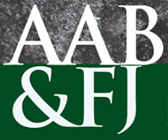Abstract
This study examines whether the corporate social performance (CSP) activities of firms influence the structure of debt in the Australian context. Long-term debt is often associated with higher monitoring by lenders, which suggests that firms may benefit from using long-term debt strategically. Short-term debt arises from regular business dealings with a number of primary stakeholders such as customers, suppliers, employees and lenders. We propose in this study that businesses that are committed to improving CSP outcomes may reduce use of short-term debt contributing to building sustainable long-term relationships with the primary stakeholders. We therefore investigate whether firms that prioritise CSP favour long-term debt or short-term debt. Using a sample of Australian Securities Exchange (ASX) listed firms, this study finds that the level of CSP is not associated with long-term debt use, but there is a significant negative association between CSP and the short-term debt usage. This finding suggests that firms with stakeholder-friendly policies reduce their use of short-term debt rather than long-term debt. The reduced use of short-term debt helps resolve possible conflicts between the primary stakeholders and a firm, thus this study presents evidence supporting stakeholder theory and conflict-resolution hypothesis.
Keywords: Corporate social performance, Debt, Stakeholder theory.
How to Cite:
Yarram, S. R. & Fisher, J., (2021) “Corporate Social Performance and Use of Debt: an Examination of Australian Companies”, Australasian Accounting, Business and Finance Journal 15(4), 4-27. doi: https://doi.org/10.14453/aabfj.v15i4.2
Downloads:
Download PDF
120 Views
749 Downloads

